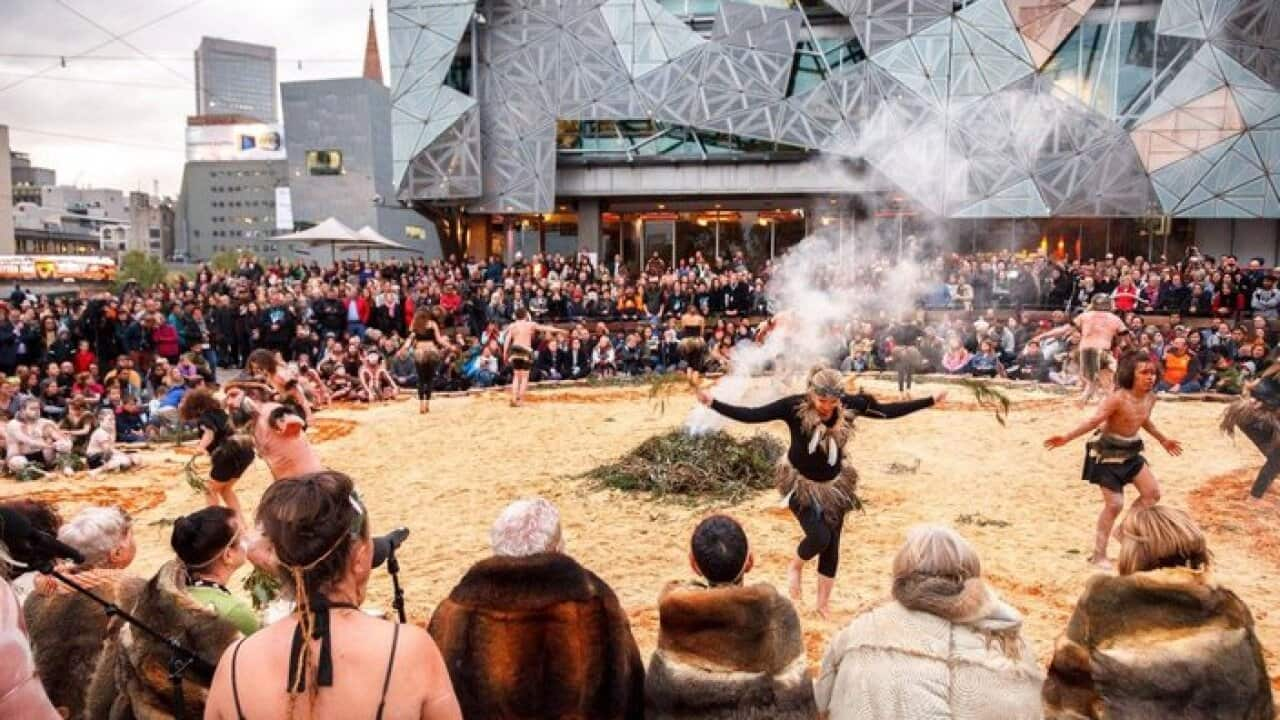As citizens are inducted into Australian society, people are told they have the right to speak their language. They have the right to dance, they have the right to eat their foods and the same should be applied to First Nations people who were persecuted for their ceremony and culture like many others, for some there may never be the chance to do so.
The Tanderrum is the ceremony of the five nations that make up the Kulin - Woi Wurrung, Boon Wurrung, Wadderung, Tungurung and the Dja Dja Wurrung people. The Ceremony was performed pre-colonisation and witnessed post-colonisation by early settlers to the region in 1835. The Tanderrum has been revived as a new journey and is now in it's fourth year to open the Melbourne Festival.
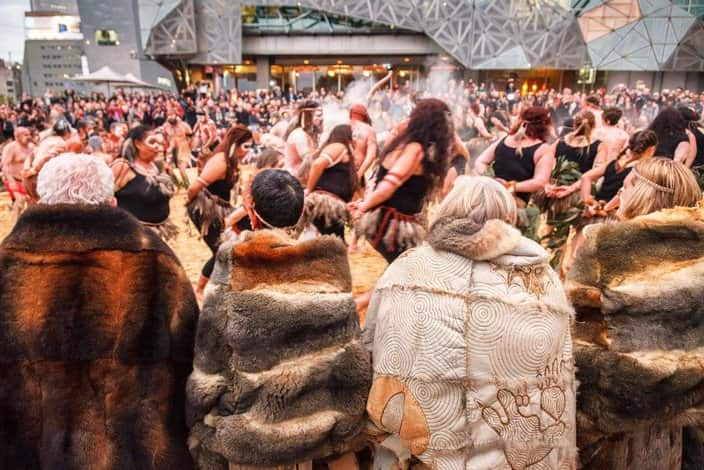
The ceremony welcomes visitors to the Kulin Nations on the shared ceremonial meeting ground on the Woi Wurrung and Boon Wurrung nations (Federation Square). Boon Wurrung cultural advisor Aunty Carolyn Briggs says the word "Womenjika" is not just a welcome, it means "come-why you come and then the purpose of you coming", according to Bunjils law. A word not to be taken advantage of while on country without honouring the cultural obligation of protecting the land, water and the children.
As the day progressed and preparations were made, the Tanderrum ceremony opened just on sunset as thousands of people gathered at the site waiting in anticipation for the ceremony to start. The ceremony was presented by MC and senior Elder of the Kulin Nations, Uncle Jack Charles.
In preparation the performers and organisers of the Illbijerri Theatre marked out the ceremonial ground and built up the ground with sand, bark and eucalyptus leaves for the beautiful fire that held our hearts strong during and after the ceremony.
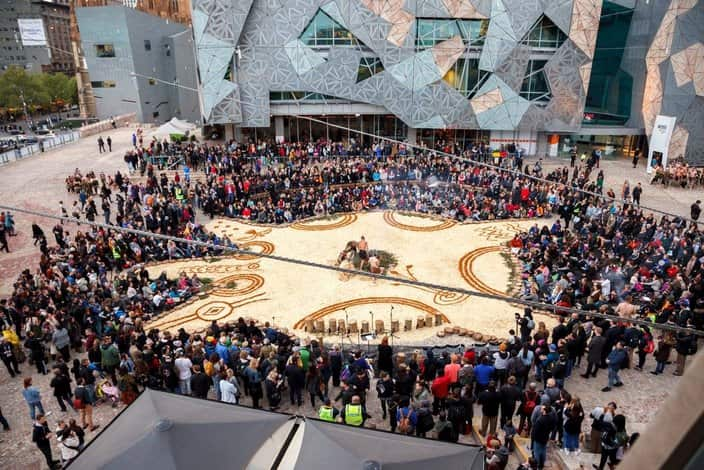
The Elders, dancers, singers and community members all prepared for the ceremony by dressing in their traditional regalia of possum skin cloaks, ochre, feathers and skin pelt skirts and lap laps. Wurundjeri Elder Aunty Diane Kerr (Woi Wurrung) explains her mother's story that is carved on her Possum skin cloak and throughout our interview, shares the knowledge of the girls coming of age protocols around the wearing of emu feather skirts to animal pelt skirts after ceremony.
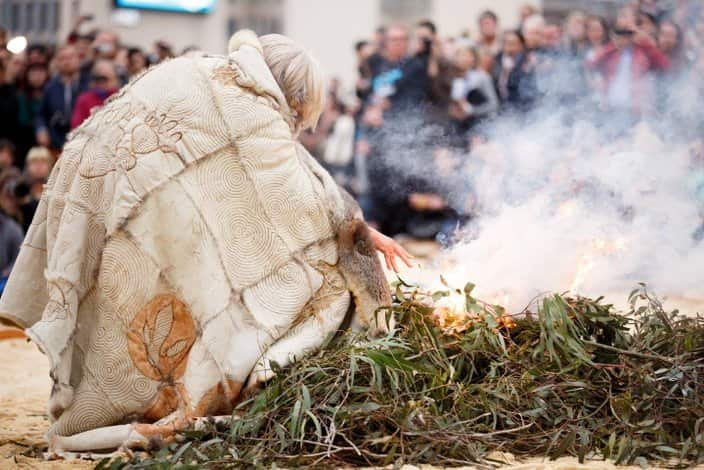
Wurrung means tongue- to speak. You speak your tongue. As each nation comes together many of the Elders all spoke of how their people were punished during colonisation and forcibly removed onto missions for speaking their language. The ceremony helps to honour their ancestors and their children by taking control, bringing back their stories and journey without feeling ashamed of who they are.
Carolyn Briggs says her grandson brought the ceremony to the next stage for the Boon Wurrung people through song in language, first introduced to the Tanderrum by First Nations Song Man James Henry. This year the younger dancers brought the songs through in collaboration with Dja Dja Wurrung Song Woman Lou Bennett.
Aunty Carolyn says culture can't stagnate, it has to be evolving.
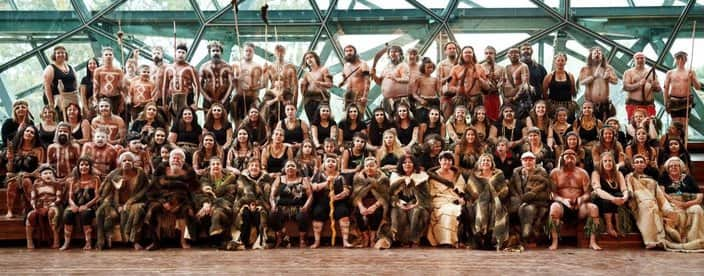
Living Black Radio would like to thank Boon Wurrung Elder and cultural advisor Carolyn Briggs and Ilbijerri Theatre.
We thank the Elders and their families from the Kulin Nations past, present and future featured in this radio segment.
The feature is presented by Kirstyn Lindsay and produced by Camilla Hannan SBS Radio Melbourne.
